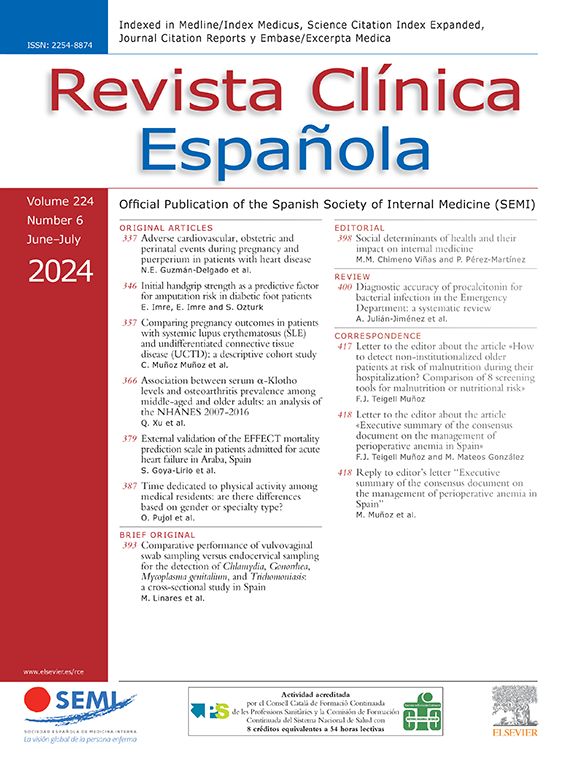Los servicios de consultoría en ética clínica (CEC) surgen de los comités de ética para la asistencia sanitaria (CEAS) para atender conflictos éticos en tiempo real. Nuestro objetivo es conocer la percepción de utilidad de la CEC entre los profesionales sanitarios tras un año de su creación, así como evaluar los cambios de tendencia en el uso de la CEC y de los CEAS entre 2015 y 2021.
Material y métodosEstudio observacional transversal mediante una encuesta estandarizada a los profesionales sanitarios de un hospital terciario urbano. Se compararon estos resultados con los de una encuesta idéntica realizada sobre la misma población en 2015.
ResultadosParticiparon 213 profesionales (edad media 44 ± 11 años, 69% mujeres). Los profesionales conocían más la existencia de los CEAS que la CEC (94 vs. 61%; p<0,001). Un total de 45 encuestados (21%) habían consultado a la CEC desde su puesta en marcha; el 95% de ellos reconocían la utilidad de la consulta. Los facultativos conocían y utilizaban más la CEC que otros grupos profesionales. El grado de conocimiento sobre los CEAS en 2021 aumentó significativamente respecto a 2015 (94 vs. 76%; p<0,001). Se identificaron como áreas de mejora la necesidad de una mayor difusión del servicio, garantizar recursos institucionales para su mantenimiento y fomentar mayor participación de distintos profesionales.
ConclusionesEn los últimos años ha aumentado el conocimiento de los CEAS y de la CEC entre los profesionales sanitarios quienes consideran a la CEC útil para la atención de problemas éticos cotidianos.
Clinical ethics consultation services (CEC) have arisen from healthcare ethics committees (HEC) to address ethical conflicts in real-time. Our aim was to determine the perception of usefulness of a CEC service among healthcare workers one year after its creation as well as to assess changes in trends in the use of the CEC and HEC between 2015 and 2021.
Material and methodsThis observational, cross-sectional study was based on a standardized survey of healthcare workers at an urban tertiary care hospital. The results were also compared to those from an identical survey conducted in the same population in 2015.
ResultsA total of 213 professionals participated (mean age 44±11 years, 69% women). The professionals were more familiar with the HEC than the CEC service (94 vs. 61%; p<0.001). Forty-five individuals (21%) had consulted the CEC since its implementation; 95% of them found the consultation useful. Physicians knew about and used the CEC more than other groups of professionals. The degree of knowledge of the HEC increased significantly by 2021 compared to 2015 (94 vs. 76%; p<0.001). Some areas for improvement identified were the need for greater dissemination of the service, guaranteeing institutional resources to maintain the service, and encouraging greater participation from different professional groups.
ConclusionsKnowledge of the institutional HEC and CEC services has increased in recent years among healthcare workers, who considered the CEC service to be useful for addressing ethical conflicts in daily practice.
Article
Diríjase desde aquí a la web de la >>>FESEMI<<< e inicie sesión mediante el formulario que se encuentra en la barra superior, pulsando sobre el candado.

Una vez autentificado, en la misma web de FESEMI, en el menú superior, elija la opción deseada.

>>>FESEMI<<<






